
China
14:32, 14-Sep-2017
China Footprint: Will second-child policy solve aging problem?
By Liu Yang, Zhang Youze
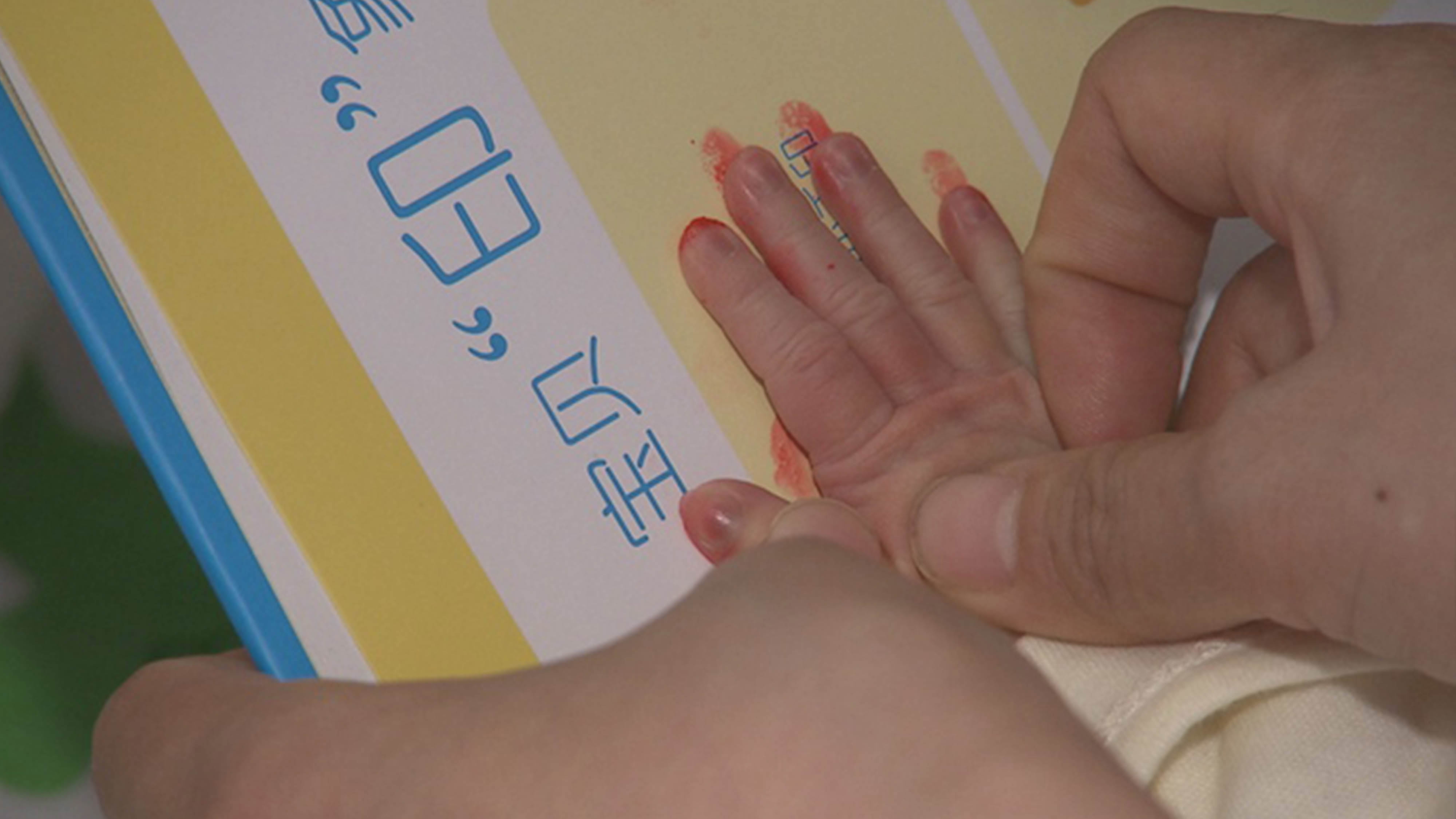
With the largest population on the Earth, China has more mouths to feed and more elderly to take care of than any other countries in the world. Adding to that challenge is the fact that China is aging faster than it's getting rich.
The Chinese government relaxed its one-child policy at the start of last year to allow families to have two kids each. This was done to help counter the effects of the nation's aging population and the shortage of labor force.
In the first five months of 2017, half of all babies born nationwide were second children, bringing extra joy to their families. But not everyone is excited.
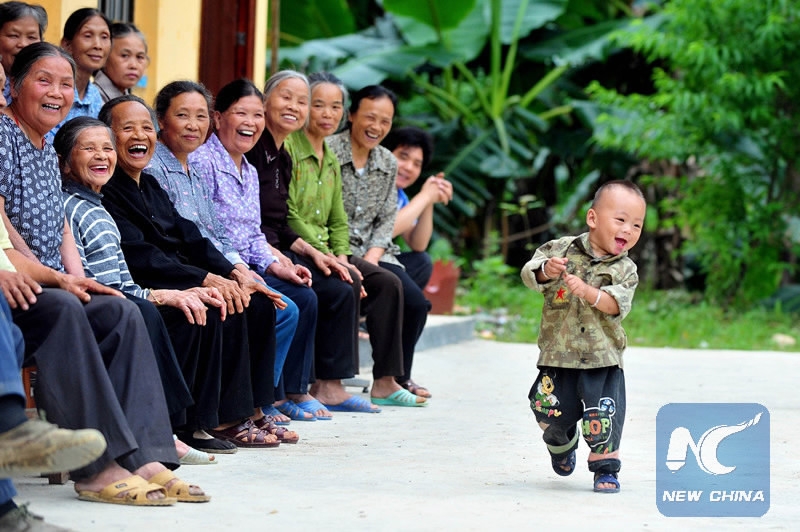
China had more than 230.8 million people aged 60 or above at the end of 2016, 16.7 percent of the total population, according to the Ministry of Civil Affairs. /Xinhua Photo
China had more than 230.8 million people aged 60 or above at the end of 2016, 16.7 percent of the total population, according to the Ministry of Civil Affairs. /Xinhua Photo
A dream come true
Xu Chunmei, a mother in Chengdu in southwest China's Sichuan Province, recently gave birth to a baby girl. The girl has a six-year-old sister. Xu said having a second child had always been her dream, and she had never hesitated when she saw the second-child policy announced.
"I am from the first generation of children born during the one-child policy era in the 1980s," she said. "My parents both have many siblings, and I felt good about that, so when the second child policy was announced, I decided to have another baby. I want my children to feel what I felt – the affection of a big family."
The second-child policy was implemented in response to the country's graying population and other social issues. The new approach ended China's one-child policy, which was put in place to slow the nation's population growth.
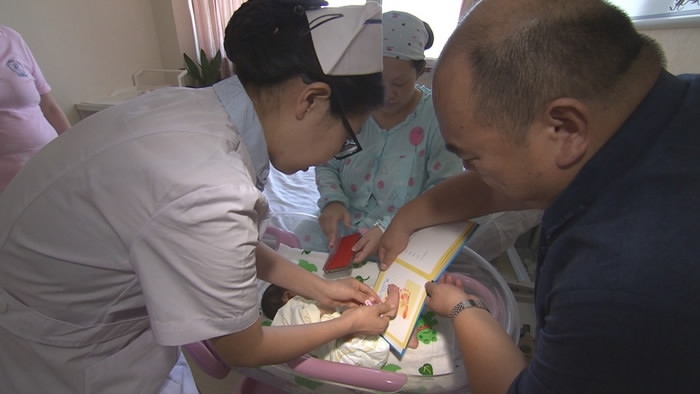
A nurse helps Xu Chunmei's family make the imprint of her newborn baby's foot. /CGTN Photo
A nurse helps Xu Chunmei's family make the imprint of her newborn baby's foot. /CGTN Photo
"From the point of view of gynecology, one concerning issue related to the two-children policy is the age of the pregnant women. This can pose problems and risks for the pregnancy, especially if women with scarred uteruses become pregnant," said Lin Yonghong, vice-president of the Chengdu Women and Children's Central Hospital.
"We have taken a variety of considerations to take into account for prenatal screening and diagnosis, as well as paying attention to medical complications and other factors," Lin added.
Experts say 60 percent of women eligible for a second child are at least 35 years of age. They estimate that at least three million women of this age could be expected to fall pregnant between 2017 and 2020. This has resulted in an increased risk of birth defects. It is one of the reasons why many of these older women have given up the idea of having a second child, and there are some who simply do not want another child.
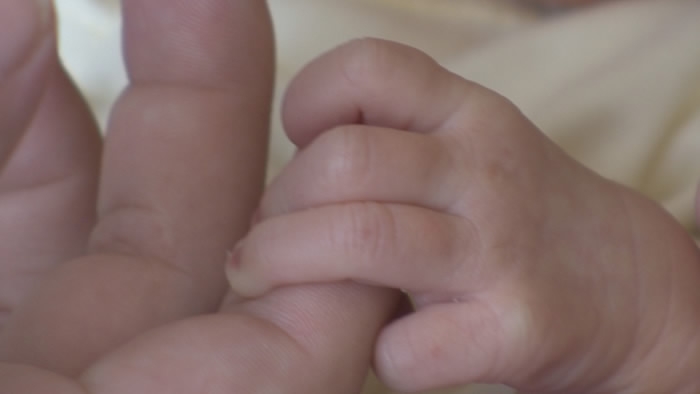
Xu Chunmei's little girl's hand (R). /CGTN Photo
Xu Chunmei's little girl's hand (R). /CGTN Photo
One child or two?
Zhang Yu, another woman living in Chengdu, once wanted two children. But that changed after she had her first child: Raising one kid is harder than expected. The mounting pressure has forced her family to face reality.
"As my parents are aging, they are beginning to lack energy, and it would not be possible for them to take care of another child," Zhang expressed her concerns. "If I gave up work to take care of my child, I am afraid that I would lose touch with society, and financially, if our family depended solely on my husband's income, he would be under a lot of pressure. I also don't want to be a full-time mother. So gradually, the notion of having the second child has gone."
According to the National Health and Family Planning Commission, despite many women having conflicting thoughts like Zhang, birth rates have risen across China. Close to 18 million babies were born in 2016, up by 1.3 million from the year before. It was the biggest annual increase in two decades. The number of births in Chinese hospitals from January to May 2017 reached 7.4 million, up by about eight percent year on year.
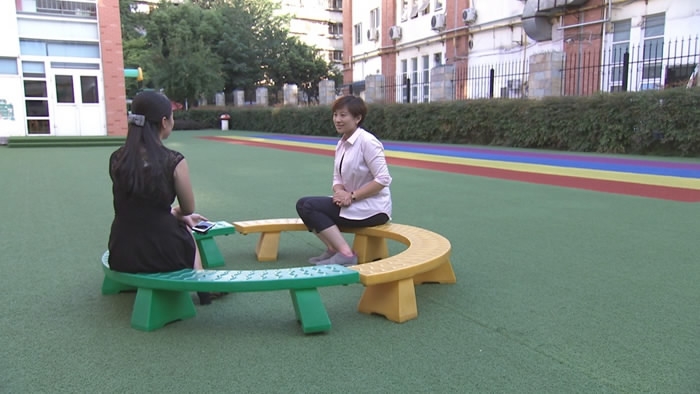
Zhang Yu (L) has made her decision not wanting a second child. /CGTN Photo
Zhang Yu (L) has made her decision not wanting a second child. /CGTN Photo
Zhang Liang, deputy chief of the Health and Family Planning Commission of Sichuan, told CGTN: "We opened consultation clinics for those with the second children. These clinics mainly provide services including maternal care and the termination of contraception services. We strengthened the management of maternal classification and emergency obstetric care. We have also established a four-level emergency mechanism, from the township to the provincial level."
Experts say the birth rate can rise further if incentives are offered to those who plan to have second children. For instance, working dads in Jiangsu Province in east China are now allowed to take an entire month's worth of paternity leave - double the amount in other provinces. Countries with aging populations like Japan have also offered cash subsidies, longer maternity breaks, tax perks, and health benefits to help boost the population.
China is aging more rapidly than almost any country in recent history, according to the United Nations. A new study showed population aging could peak by 2070. Experts believe the second-child policy will produce a good result for China's future.
1521km
Previous episodes:

SITEMAP
Copyright © 2018 CGTN. Beijing ICP prepared NO.16065310-3
Copyright © 2018 CGTN. Beijing ICP prepared NO.16065310-3